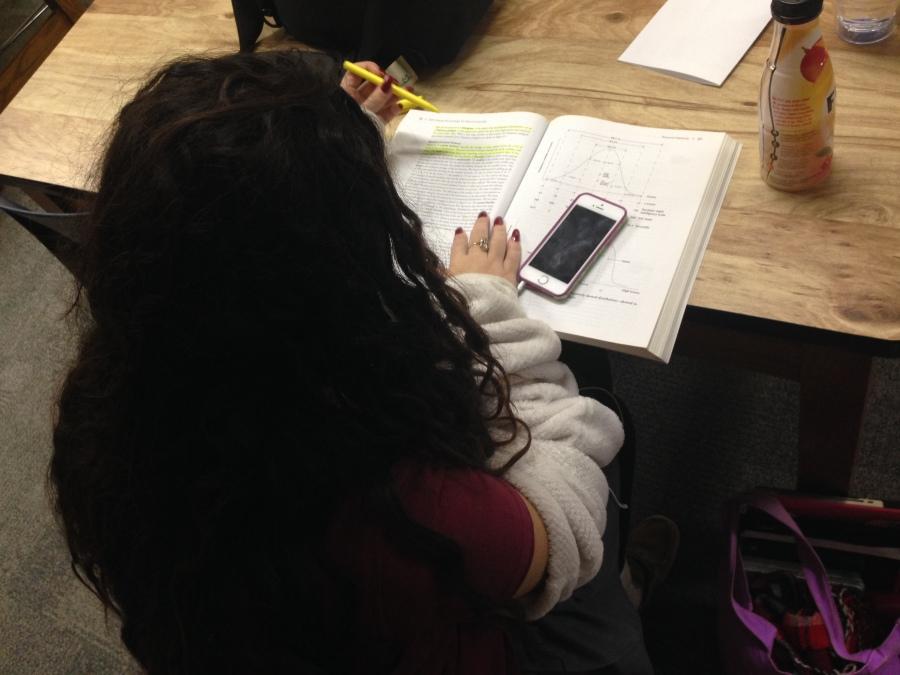Increasing Homework Does Not Increase Intelligence
Lengthening homework loads to extraneous amounts is overall ineffective and does not strengthen understanding of the particular topic.
She sits down, papers strewn everywhere. The agenda is picked up and her eyes widen at the realization of work that is due the next day. Taking a deep breath, she begins her homework, and does not stop until her eyes begin to force themselves to close. Laying her head down on the pillow, she wakes up a mere 4 hours later to begin the familiar agonizing routine.
Homework is a constant part of students lives around the world. But when spending more time on homework than the actual school day, at what point is the workload too much? And when the projects are filled with menial busy work, and begin to hinder capabilities because of the time consumption and lack of sleep, it can become an increasing problem.
“Homework just reinforces what you have already learned, it doesn’t help you in the long run,” senior Maddie Beshoner said, “If the teacher does not teach it, you shouldn’t have to learn it on your own through homework.”
Although some homework is important to ensure understanding of a particular topic, too much can be harmful. A recent study at Stanford University discovered that students in high achieving communities, such as Sion, spend way too much time on homework. This extraneous amount of homework is found to create more stress, physical health problems, and even alienation from society. The study found that more than two hours of homework is counterproductive, which is usually the minimum for Sion students each night.
“The more time students spend on homework, it’s not clear that they are getting better grades or better test scores,” said Robert Tai, an associate professor with the Curry School of Education at University of Virginia.
Homework is also found to create depression and even lower grades according to a study conducted by australian researchers. And when extracurricular activities are important, after the school day no free time is allotted for activities and homework, or even relaxation.
“Free time plays a key role in fostering both creativity and emotional development, factors just as basic to long term success as an academic gains,” said John Buell, who wrote Closing the Book on Homework and The End of Homework.
In Finland, practices have been adopted and students had an allotted time of 30 minutes each evening. Students have had less stress, scored higher grades and have some of the best test scores in the world.
Homework at Sion should not be abolished, but rather reexamined, because the amount is reaching extremes. As Sion updates grading scale changes and revisits curriculum, homework load should also be reconsidered, because the increasingly large amounts have students straining to complete daily.



